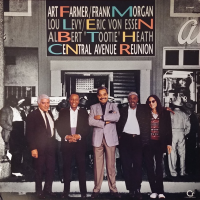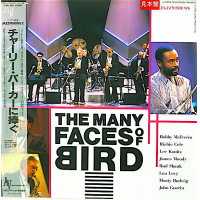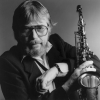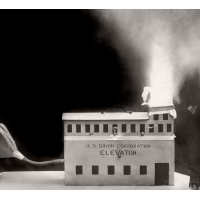Home » Jazz Musicians » Lou Levy
Lou Levy
Tags
Terry Gibbs Dream Band: Dream Band, Vol. 7: The Lost Tapes, 1959

by Angelo Leonardi
«Non credo che ci sia mai stata una band migliore di questa, compresa la mia». Mel Lewis espresse queste parole per la mitica orchestra che il vibrafonista Terry Gibbs guidò in California tra il 1959 e il 1961 e fu chiamata “Dream Band" per l'entusiasmo che suscitò tra i fortunati che l'ascoltarono dal vivo. Giudizi così perentori non vanno mai presi alla lettera ma ascoltando queste inedite registrazioni non li giudicherete troppo esagerati. Stan Kenton espresse simili opinioni ...
Continue ReadingTerry Gibbs: Dream Band, Vol. 7: The Lost Tapes, 1959

by Jack Bowers
In 1959, vibraphonist Terry Gibbs and his recently formed big band set up shop at the Seville, a Los Angeles nightclub owned by Harry Schiller. Many of those early sessions were taped, at Gibbs' request, by famed recording engineer Wally Heider before being left on a shelf and forgotten. After two weeks at the Seville, Gibbs and the band moved to a second club, the Sundown. The band was successful, drew large crowds, and was soon recording, first for Norman ...
Continue ReadingTerry Gibbs: Dream Band, Vol. 7: The Lost Tapes, 1959

by Richard J Salvucci
Someone once asked Terry Gibbs how it was possible that if you took his side men, or some subset of them, and put them together in another band, they never quite sounded as good. Gibbs replied, modestly, that it was all in the arrangers. He got the best arrangers, like Bill Holman, Marty Paich and Med Flory. Others did not. And so the story went. It would have been tempting to ask if, perhaps, Gibbs had ...
Continue ReadingBackgrounder: Lou Levy 4 - Jazz in 4 Colors

Source:
JazzWax by Marc Myers
When Shorty Rogers signed with RCA in the early 1950s, he had two jobs: to record albums for the label and to function as an A&R executive who would come up with new ideas with talent and record them. One of those ideas in 1956 was to help Lou Levy create a new sound for a quartet. During the weeks Rogers and Levy were in conversations, Levy worked a job with Larry Bunker on vibes. The two clicked. They added ...
read more
Lou Levy In Italy With Getz, Brown And Thigpen

Source:
Rifftides by Doug Ramsey
Today is Lou Levy’s birthday. Until his death at 72, the great second-generation bop pianist (1928-2001) played with Boyd Raeburn, Woody Herman’s Second Herd, Tommy Dorsey, Dizzy Gillespie, Flip Phillips, Dizzy Gillespie and Shorty Rogers, among dozens of other major jazz artists. He was a treasured accompanist to singers including Ella Fitzgerald, Peggy Lee, Sarah Vaughan, Anita O’Day and his longtime companion Pinky Winters. Levy’s close relationship with tenor saxophonist Stan Getz went back to their time together in the ...
read more
Lou Levy: Jazz in Four Colors

Source:
JazzWax by Marc Myers
In November 1955, RCA began ramping up production of 12-inch jazz and pop LPs. Earlier in the decade, RCA had stuck steadfastly to the 45—a format it invented and unveiled in 1949 as a response to Columbia's LP. In addition to releasing 10-inch LPs, RCA issued box sets of 45s in an effort to keep a hand in. But by late 1955, the cost of copyrights for standards favored by pop and jazz artists had become marginal thanks to lower ...
read more
Recent Listening: Lou Levy, Carol Sloane

Source:
Rifftides by Doug Ramsey
Trying to keep up with new releases, I often get sidetracked by old favorites. It happens that my recent listening coincides with the birthday of two of the listenees.
Lou Levy, Lunarcy (Verve). Levy would have been 81 today. He died in January of 2001. From his post-World War Two beginnings with Georgie Auld through work with Sarah Vaughan, Boyd Raeburn, Woody Herman, Peggy Lee, Ella Fitzgerald, Stan Getz and Frank Sinatra--among many others--Levy was in demand as a band ...
read more
Lou Levy Said It

Source:
JazzWax by Marc Myers
“I remember sitting, with the saxophone section in the bend of the piano--Al Cohn, Zoot Sims, and Sam Marowitz and Stan Getz and Serge Chaloff when these guys would stand up to play, I would hear all this stuff coming out. When the section would play, I would hear Al Cohn. Now I didn't know him that well, but I could hear that sound coming out of the section, that soulful sound. Then when he'd stand up to play a ...
read more






























